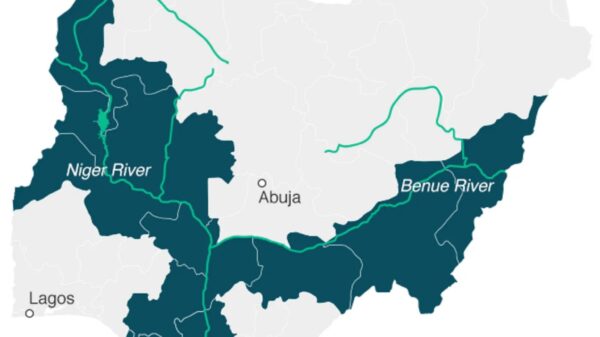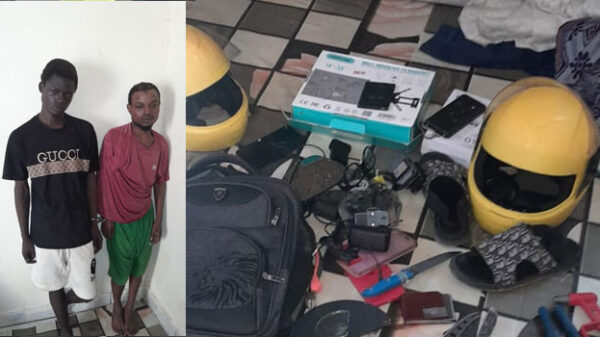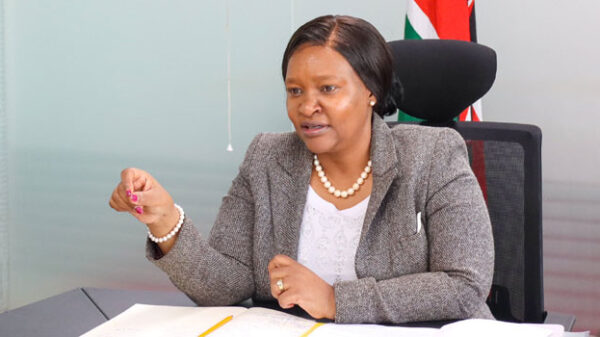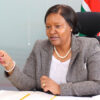NAIROBI, Kenya Apr 8 – Mary was just 17 when she got pregnant.
This forced her to drop out of school in what caused major friction with her mother who threatened to eject her from their house in Kibera, a densely populated slum in the capital Nairobi and the second largest informal settlement in Africa where at least six such pregnancies are recorded every month, according to the Kibra Young Mothers Association.
Just like most slums in Kenya, children in this slum that UNHABITAT estimates show has a population of between 500,000 to 700,000 inhabitants, depend on school-based programmes for basic needs like food and sanitary pads for girls.

Human right campaign groups say the number of girls who got pregnant in the country were even more when Kenya closed schools between March 2020 to January 2021 to contain the spread of COVID-19. With the new lockdown, they are even more worried because the schools have closed again.
The Kenya Health Information Management System recorded more than 170,000 teen pregnancies last year alone, when schools were closed thus depriving them of education – a fundamental human right.
And according to the Kenya Demographic and Health Survey (KDHS), the most vulnerable group is aged between 15 and 19.
In Mary’s case, she got pregnant when she was in Form 2.
“It is the worst mistake I made but I have learned my lesson,” she said, “when my mother noticed changes in my body and took me for a test at a pharmacy, I didn’t know what to tell her. I was so ashamed and felt like I had really let her down because she is a single mother. She had so much hope in me.”
Mary recalls how she was shunned in school and had to drop out.
But even at home, her friends, apart from one, avoided her after their parents branded her a ‘bad girl’. “They said I will spoil their daughters so I had to just lock myself up in the house where mum scorned me daily.”
She is forever grateful to one of her friends who stood by her and pleaded with her not to commit suicide.
“She introduced me to a lady who works at an organisation that mentors and supports teen mothers. This is the lady who pleaded with my mother to accept me. And I am glad she did.”
That lady is Kate Wangui, the leader of Kibra Young Mothers Association, an organisation that runs projects in Kibra.
The group is instrumental in supporting adolescent girls, teen mothers and young women to resume school after dropping out due to pregnancies.
It also offers psychological support for them as well as livelihood initiatives.
But Wangui said only a small fraction go back to school.
“We face a major challenge looking for these girls in the slum and when we get them, many are not willing to go back to school,” she said, “But I am glad that we have managed to get some back to school.”
In Kibra, the largest slum in the capital Nairobi and the largest urban slum in Africa, most of the dwellers live on less than a dollar a day.
“Now you can imagine the agony the parents undergo when their daughters get pregnant,” Kate said,” it is a major challenge.”
She recalls how she convinced Mary’s mother to accept her with the pregnancy and assured her that she can still pursue her dreams after giving birth.
Mary gave birth to a baby girl and went back to school.
“I am forever indebted to Kate because apart from convincing my mother to accept me in the status I was in when I got pregnant, she got me a donor who offered to pay my school fees and that is why I was able to resume studies.”
Mary said she had lost hope and was not sure of accomplishing her dreams of finishing school and getting a job to support her single mother.
Many girls who get pregnant in Kibra opt for unsafe abortions and their cases are never documented.
“My advise to girls, never be in a hurry in life. These men are there and will always be there. When you are in school, they don’t care about your life because they only want to use and dump you,” she said, “concentrate in your studies.”
Using her own example she said, “imagine the trouble I put my mother in when I fell pregnant because she was already struggling to put food on the table.”
Mary said she is looking forward to starting a small business of selling fried potatoes just next to their house so as to supplement her mother’s income.
Already, she said, she engages in part-time jobs to help bring up her baby.
These are the challenges teen mothers undergo in Kibra.
“We try to always encourage them to do something so as to keep them busy and to help them make some coins because life is hard,” Kate said, “they can easily give up out of despair.”
Kate said they use girls like Mary to reach out to more girls in the slum not to give up in life.
“We have established champions among the girls that we mentor and they are now instrumental in talking to more girls to concentrate in their studies,” she said.
Kate said the organisation is now looking after 18 girls, some of who have already gone back to school, like Mary, after giving birth.
Education Cabinet Secretary George Magoha has vowed to ensure that any girl who drops out of school because of pregnancy is re-admitted to continue with her education.
“There is no girl who will be locked out of school because of pregnancy,” he said, “every girl deserves the chance to complete school.”
The ministry has not, however, provided statistics to indicate the number of girls who have dropped out of school due to pregnancies and those re-admitted.
Last month, Interior Cabinet Secretary Fred Matiangi issued a directive for the arrest and prosecution of those who impregnant school girls depriving them of the fundamental human right, saying he was particularly alarmed by Trans Nzoia County that recorded 10,000 cases last year.
“We will not tolerate this kind of habit. So many girs are dropping out of school and action must be taken,” he said.
Local administrators however, say they face a major challenge cracking down on the men who impregnant the schoolgirls.
“It is not easy,” one administrator in Trans Nzoia said, “it needs a lot of cooperation from the girls themselves, parents and locals and this is what is lacking.”

























































